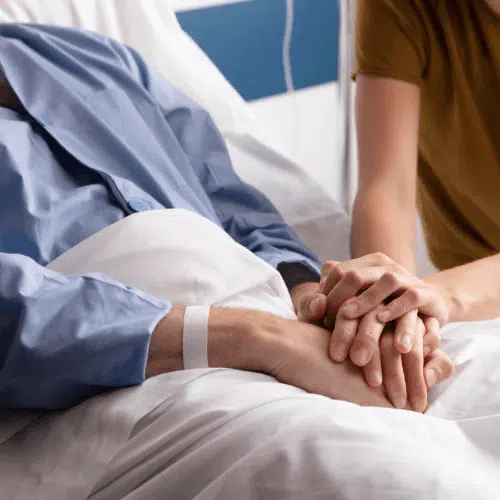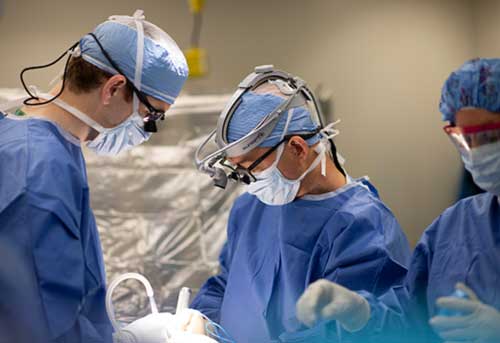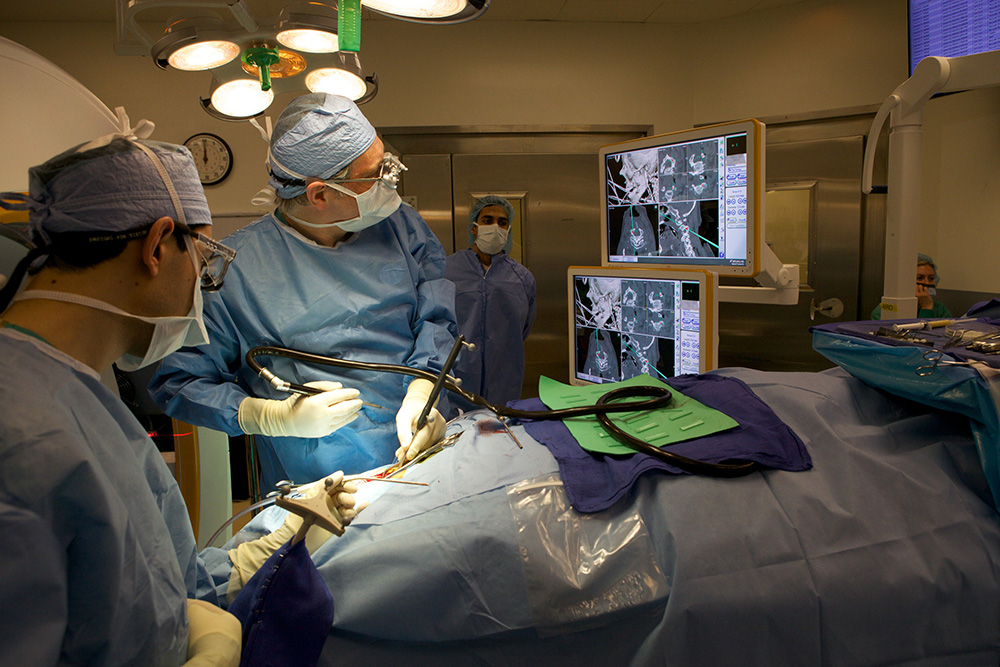Exploring the Factors Behind Requiring Spine Surgical Procedure for Numerous Conditions
The need for spinal column surgery emerges from a variety of problems that can drastically harm an individual's lifestyle. Generally come across concerns such as degenerative disc condition, herniated discs, and spinal constriction typically show up as chronic discomfort and incapacitating signs and symptoms. In a lot of cases, when conservative treatment choices confirm inadequate, people may discover themselves contemplating medical intervention. Comprehending the specific indicators that warrant surgical factor to consider is crucial for both individuals and doctor. The implications of these conditions expand far beyond prompt discomfort alleviation, welcoming further evaluation into the complexities of back health monitoring.
Usual Spinal Column Conditions
Typical back conditions incorporate a variety of conditions that impact the vertebral column and its connected structures. Amongst one of the most prevalent conditions are degenerative disc disease, herniated discs, spine constriction, and spondylolisthesis. These conditions can bring about substantial pain and functional limitations, impacting the quality of life.
Degenerative disc disease takes place when the intervertebral discs lose hydration and flexibility, resulting in reduced disc elevation and increased back instability. Herniated discs develop when the inner gel-like material of a disc protrudes or leaks via its outer layer, often compressing nearby nerves. Spine constriction is characterized by the narrowing of the back canal, which can result in press on the spine and nerves. Spondylolisthesis entails the variation of one vertebra over another, possibly triggering nerve compression and discomfort.
Other conditions such as scoliosis, characterized by an uncommon lateral curvature of the back, and osteoarthritis, which affects the facet joints, likewise add to spine-related problems. Each of these conditions might demand varying treatment strategies, consisting of conventional monitoring or surgical treatment, relying on the intensity and impact on the client's day-to-day activities.
Signs And Symptoms Indicating Surgical Treatment
Signs and symptoms that may show the requirement for spinal column surgical treatment can occur from the numerous spine conditions reviewed previously. Clients frequently experience consistent pain that does not enhance with conventional treatments, such as physical therapy or medication. This discomfort can show up as local pain in the back or emit to the limbs, suggesting nerve involvement.
Additionally, numbness, tingling, or weak point in the legs or arms can signify nerve compression, which might require medical treatment to stop more neurological degeneration. One more important sign is loss of bladder or bowel control, frequently indicative of cauda equina syndrome, a clinical emergency requiring immediate surgical analysis.
In some instances, individuals may also report significant trouble in doing daily tasks as a result of instability in the spinal column or debilitating pain. These functional constraints, together with progressive signs and symptoms, call for a complete evaluation by a spine specialist.
Ultimately, when conventional steps fall short to minimize symptoms and lifestyle is significantly impacted, surgical procedure may be taken into consideration to bring back feature, eliminate pain, and stop long-term problems. It is crucial that people experiencing these signs and symptoms seek specialist medical recommendations promptly.

Non-Surgical Therapy Choices
Countless non-surgical treatment choices are available for individuals experiencing spine-related concerns, aiming to ease pain and enhance capability without the need for invasive treatments. These treatments can be tailored to the particular problem and severity of signs.
Physical treatment is often a first-line method, concentrating on strengthening core muscles, improving versatility, and boosting total spinal health. Hands-on treatment strategies, such as chiropractic modifications, can also offer relief by reducing and realigning the spine stress.
Medications, including non-steroidal anti-inflammatory medications (NSAIDs) and muscle mass relaxants, may be recommended to handle discomfort and inflammation. Furthermore, corticosteroid injections can provide targeted relief to affected areas, particularly for conditions like herniated discs or spinal constriction.

Alternate therapies, such as acupuncture and massage therapy, have actually gained popularity for their potential to minimize pain and promote recovery. Lifestyle modifications, consisting of weight management and ergonomic adjustments, play a vital duty in long-lasting spinal column health and wellness.
For some people, back decompression therapy or transcutaneous electric nerve excitement (10S) might supply alleviation by lowering pressure on back nerves and promoting nerve function, specifically. Jointly, these non-surgical alternatives offer a thorough technique to handling spine-related conditions.

Benefits of Back Surgery
One of the primary benefits of back surgery is the capacity for significant pain relief. Problems such as herniated discs, back stenosis, and degenerative disc disease can lead to incapacitating discomfort that might not respond to conventional treatments.
Additionally, spinal column surgical treatment can bring back performance and enhance high quality of life. webpage Many clients experience boosted mobility and minimized constraints in everyday tasks following successful surgeries. This reconstruction of feature is crucial for individuals seeking to go back to function, participate in entertainment tasks, or merely take pleasure in everyday jobs without discomfort.
Additionally, spinal column surgical procedure can avoid more problems related to without treatment spinal problems. By dealing with concerns proactively, clients may prevent much more official website severe health and wellness troubles that can arise from progression of their spine problem. In general, the advantages of back surgery prolong beyond pain relief, incorporating boosted movement, boosted quality of life, and the avoidance of future complications, making it a crucial choice for several people dealing with considerable spine-related obstacles.

Recuperation and Rehabilitation Refine
The recuperation and rehab process adhering to spinal column surgical procedure is vital for ensuring ideal end results and improving the total lifestyle for clients. Effective healing begins right away after the procedure, concentrating on pain flexibility, injury, and monitoring care - best spine surgeons in st louis mo. Doctor generally suggest a combination of physical therapy, medicine, and progressive return to everyday activities to help with recovery
Patients are commonly suggested to comply with an organized rehabilitation program customized to their certain surgical procedure and private requirements. This may include targeted exercises to strengthen the core and back muscular tissues, improve flexibility, and recover performance. Adherence to the suggested recovery method is important, as it can dramatically reduce the risk of issues and advertise much faster recuperation.
It is also vital for individuals to preserve open interaction with their health care group throughout the healing procedure. Regular follow-up appointments permit the monitoring of progression, adjustments to rehab strategies, and resolving any kind of concerns that may arise. Inevitably, a detailed healing and rehab strategy not only help in physical recuperation look here yet additionally sustains emotional health, encouraging individuals to regain freedom and go back to their recommended tasks with self-confidence.
Final Thought
Finally, understanding the reasons for back surgery is crucial in dealing with incapacitating conditions that influence lifestyle. best spine surgeons in st louis mo. Common concerns such as degenerative disc condition, herniated discs, and back constriction necessitate careful assessment of signs and treatment alternatives. While non-surgical strategies might provide relief, medical treatment frequently comes to be needed when traditional methods fail. Eventually, spinal column surgical treatment can restore function and enhance overall health, highlighting the value of timely analysis and treatment for afflicted people.
The requirement for spine surgery arises from a range of conditions that can badly harm an individual's high quality of life. The implications of these problems extend much past immediate discomfort alleviation, inviting more assessment into the complexities of spine health and wellness administration.
Signs and symptoms that may suggest the demand for back surgery can arise from the various back conditions gone over formerly.In addition, back surgical treatment can stop more difficulties linked with unattended spinal conditions.In conclusion, recognizing the reasons for spinal column surgery is essential in resolving incapacitating problems that impact quality of life.